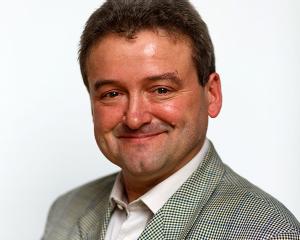Professor Volker Hessel Seminar
Flow and Plasma Chemistry – Disruptive Technologies Transform Industry through Theme-based ApproachVolker Hessel, School of Chemical Engineering, Faculty of Engineering, Computer & Mathematical Sciences, University of AdelaideWednesday 10th April 2019 12-1pm, buffet lunch 1-2pmRoom MS.02, Zeeman Building, University of WarwickRegistration is required. See bottom of page to register. |
|
At our Faculty at the University of Adelaide, we have developed a unique Theme-based approach which truly leads to an interdisciplinary research outcome (as opposed to multidisciplinary), and this is a cross-faculty and cross-discipline action. Core is a selection and targeting of industrial windows of opportunity to be translated to an industrial showcases, which is followed by technology development and stakeholder engagement. Outcome is an aim for transformative change of industry by disruptive technologies, breaking with existing approaches, and pharmaceutical industry was changed that way. This offers release of large sustainability gains and leads to entirely new business models. This will be exemplified along four lines.
Novel Process Windows (2006-2018) Flow Chemistry provides chemical intensification. Novel Process Windows (NPW) achieve the latter through exploration of unusual and typically harsh process conditions with much enhanced activation and also chance for different selectivity pattern [Hessel, ChemSusChem 2013]. Several flow chemistries were developed via high-T, high-p, high-c (solvent-free; alternative solvent) concepts, leading to a boost of reactivity. This is complemented by the implementation of new smart electromagnetic activation modes (photo, plasma) as powerful alternative to temperature activation. Once the single processing steps are intensified, they can be brought to a higher level of process integration and simplification by complete continuous end-to-end manufacturing.
Solvent Factory (2017 onward) The FET-Open project ONE-FLOW translates the ‘vertical hierarchy’ of chemical multistep synthesis with its complex machinery into self-organising ‘horizontal hierarchy’ of a compartmentalized flow reactor system (www.one-flow.org). The new concept of a ‘Solvent Factory’ uses multi-phase liquids as integrated reactor-separator; ideally without need of any post-processing and –purification steps. This switch from hardware- to soft matter processing tools is especially beneficial, when approaching multi-step reactions with its many reactors and separators, and replacing them by one.
Fertilizing with Wind (2014 onward) Plasma-enabled chemical nitrogen fixation using air (N2) allows to manufacture NO/NO2 which can be further converted to yield nitric acid by absorption in aqueous solution. In a similar way, nitrogen and hydrogen can be reacted by plasma catalysis to give ammonia. In this way, fertilisers can be made “out of air” and using wind as green energy source. It will be discussed how this can lead to a transformation of agriculture to a precision horticulture. This is currently implemented in Uganda, as much growing AgTech nation, and e-agriculture, based on ICT using mobile phones, is a cross-discipline enabler. With U Warwick, the ERC Synergy research offers a large opportunity for fundamental revisit of plasma catalysis and its symbiosis.
Space manufacturing (2018 onward) Space medicine is already now a business case and the next cancer drug might be developed in space. Space mining is at the edge to become a business case. Space farming is a mid-term development issue, and plasma based N-fixation can play a key role. Own research has started on flow-made quantum dots for satellite decoy and flow-based extraction of artificial asteroid ores, posing adjacent metal separation issues not known on earth. A think tank analysis has been made on medicines and nanoformulations being stable to cosmic rays. Space manufacturing is off-earth manufacturing - the advanced technologies are for use in deep sea, in dry lands, and other disruptive scenarios.

